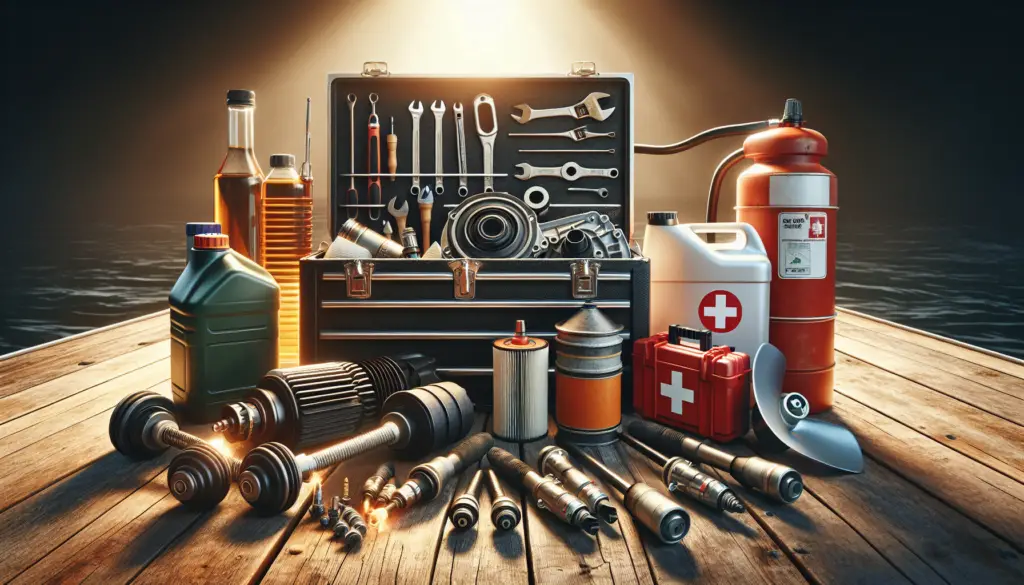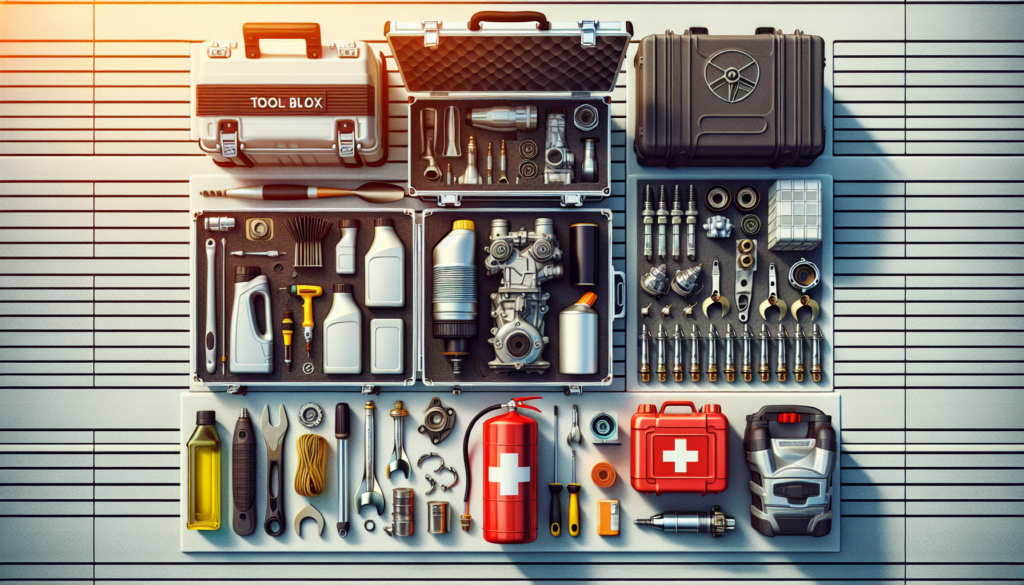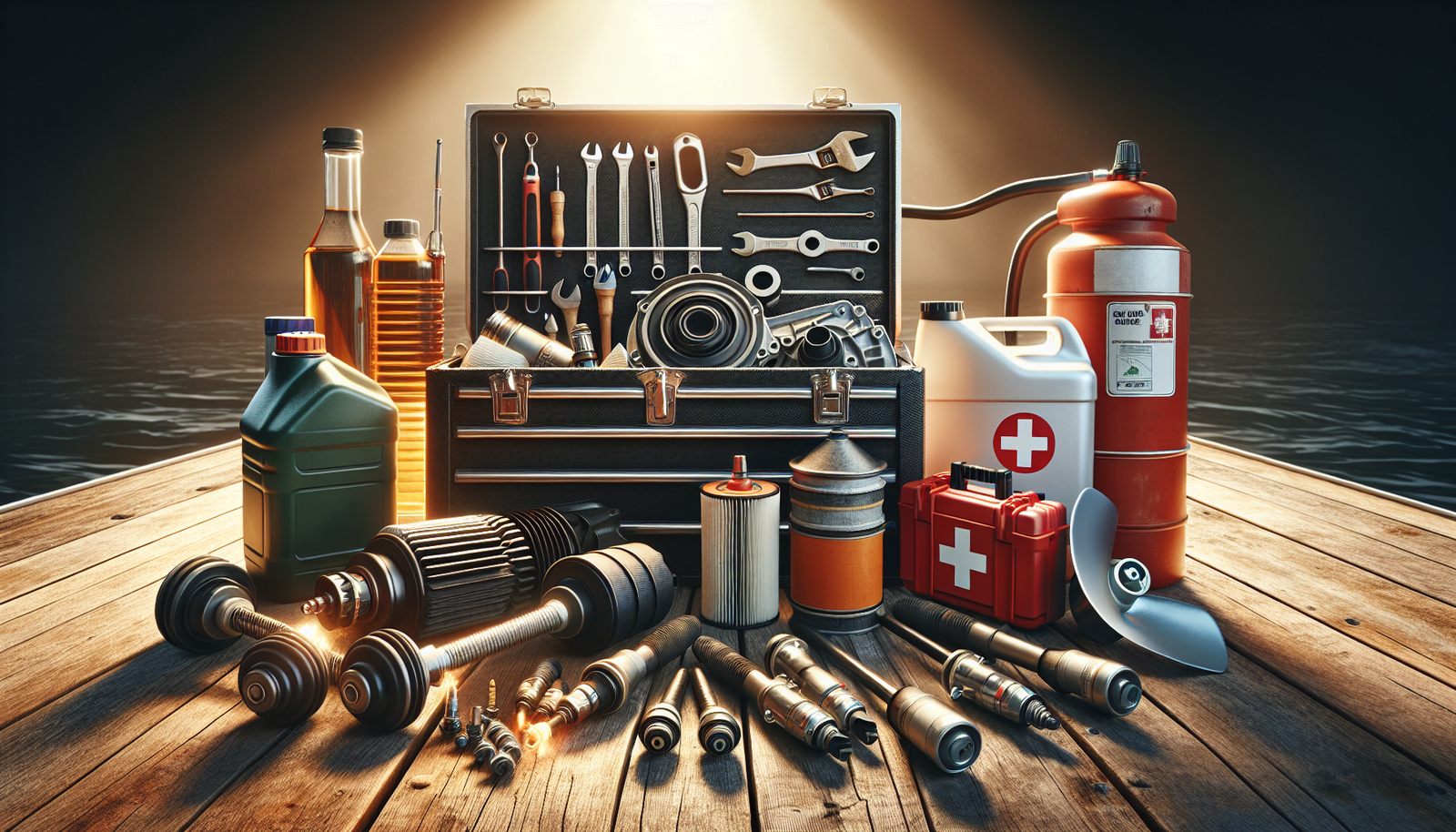Sailing isn’t just about lounging on deck, soaking up the sun while the soothing ocean waves lap at the side of your yacht. It’s also about having the right equipment to ensure that your boat or yacht remains in tiptop condition. “The Essential Gear Every Boat Engine Owner Should Have” is an indispensable guide that highlights the importance of certain specific gear that every boat owner ought to have. This guide goes beyond just maintaining your shipshape condition but also prepares you for any unforeseen circumstances that might just turn your dream voyage into an unexpected nightmare. From basic tools and upkeep essentials to crucial safety equipment, you’ll discover what’s needed to maximize your engine’s performance and enhance your overall sailing experience. Whether you’re a seasoned sailor or a fresh-faced novice, knowing this is part of the essential gear you need to put your sailing worries on the backburner.

Life Jackets and Safety Equipment
When it comes to boat engine owners, safety should always take precedence. Life jackets and safety equipment are an absolute must.
Importance of having life jackets
Life jackets, also known as personal flotation devices (PFDs), are vital safety gear that can be the difference between life and death in the event of an overboard incident. When worn properly, they keep you afloat in the water, giving you the time to swim back to your vessel or await rescue.
Types of boat-specific safety gear
Boat-specific safety gear goes beyond life jackets. Depending on the type of boat and its operations, you may require equipment such as ring buoys, distress flares, fire extinguishers, or even survival suits.
Maintenance and proper storage of safety equipment
Maintenance and proper storage of safety equipment are equally crucial. Always clean and dry your equipment before storing it away to prolong its lifespan. Store safety gear in an easily accessible, yet secure location to prevent damage.
Boat Engine Tools
To keep your engine running smoothly, you’ll need the right marine tools.
Different types of marine engine tools
Marine engine tools range from basic wrenches and screwdrivers to specialized tools like piston ring compressors and marine timing lights. It’s best to invest in high-quality, rust-resistant tools since they’re exposed to a marine environment.
How to use basic engine tools
While some tools are fairly straightforward, others require more understanding. Don’t hesitate to consult your engine’s manual or seek advice from marine professionals. Work methodically and safely to prevent injury or unnecessary engine damage.
Keeping your tools in good condition
Regular cleaning and oiling will help your tools resist corrosion. Always return your tools to their proper storage location after usage to avoid misplacement or accidental damage.
Navigation and Communication Devices
When you’re out on the water, it’s important to know your whereabouts and be reachable at all times.
Introduction to Marine GPS
A marine GPS is your best friend during oceanic adventures. This device can provide accurate position data, allowing you to navigate safely without fear of getting lost. Modern marine GPS devices also feature charts and weather updates to aid your journey.
Essential communication devices for boating
Aside from a marine GPS, you’ll need a marine VHF radio which communicates with shore stations and other vessels. You might also consider a satellite phone, providing global coverage even in the most remote areas.
Understanding marine VHF radio
A marine VHF radio is a lifesaver in emergencies, sending out distress signals in dire situations. Learn the correct VHF procedures and proper channel usage to ensure efficient communication.

Fuel and Oil
Proper fuel and oil are essential for your engine’s performance and longevity.
Choosing the right fuel and oil for your engine
The type of fuel and oil suitable for your engine will depend on its make, model, and age. High-quality products will maintain engine performance and increase its lifespan.
Proper handling and storage procedures
Handling and storing fuel and oil requires care to prevent accidents. Ensure that no fuel or oil is spilled during refilling, and always store these in cool, well-ventilated areas.
Understanding the role of fuel stabilizers
Fuel stabilizers are helpful in preserving the quality of the fuel in your engine, especially during long periods of inactivity. They prevent fuel from degrading and damaging the engine.
Engine Spare Parts
Having a few spare parts on board can save you from engine trouble while at sea.
Critical spare parts to have on board
Spare parts to consider include spark plugs, belts, impellers, and filters. Having these on hand will safeguard against common engine issues that could leave you stranded.
Basic engine part maintenance
Regular inspection and maintenance of these spare parts are just as important. Clean and oil parts as necessary and replace them according to the manufacturer’s guidelines.
Knowing when to replace engine parts
Knowing when to replace engine parts requires thorough knowledge of your boat engine. Generally, look out for signs of wear and tear, listen for unusual sounds, and pay attention to any drop in engine performance.
Fire Extinguishers and Safety Measures
Being prepared for the unfortunate event of a fire can prevent catastrophe.
Choosing the right fire extinguishers
Picking the right fire extinguisher involves knowing the type of fire you’re likely to encounter on a boat. Marine fire extinguishers are designed to combat different types of fires and are essential safety gear.
Proper placement and usage of fire extinguishers
Properly mounting fire extinguishers in accessible locations is vital for quick response. Educate yourself on how to use them effectively and check them frequently for any maintenance needs.
Key maritime fire safety measures
Additional safety measures include regular inspection of fuel systems, installing smoke detectors, and creating an emergency response plan in case of fire.
First-Aid Kit
A comprehensive first-aid kit is crucial for handling injuries while at sea.
Essential items in a boat first-aid kit
Your kit should include bandages, antiseptic wipes, tweezers, medical tape, pain relievers, and seasickness medication. Depending on your location and activity, you may need additional items like sting relief or a thermometer.
Proper usage and maintenance of a first-aid kit
Ensuring you know how to correctly use each item in your kit is critical. It’s also important to replace any expired or used items regularly to keep your kit fully stocked.
Understanding the value of first aid knowledge in boating
Having first aid knowledge can make a significant difference in managing accidents or health crises onboard. Consider taking a course to ensure you’re prepared for any emergency.
Lighting Equipment
Lighting is an essential part of your boating equipment that shouldn’t be overlooked.
Types of marine lights and their uses
Marine lights include navigation lights, deck lights, cabin lights, and searchlights. Each plays a vital role in night-time visibility, safety, and comfort.
Importance of having adequate lighting
Proper lighting is crucial not only for navigation but also for safety. It helps other boaters see your craft and lets you perform tasks efficiently in the dark.
Maintenance and energy efficiency considerations
Maintaining your lights and choosing energy-efficient options will extend their life and minimize your energy consumption. Regularly check for any necessary bulb replacements or repair needs.
Anchoring and Mooring Equipment
Anchoring and mooring, though seemingly simple, involve a fair understanding of equipment and procedures.
Fundamentals of boat anchoring
Understanding the process, calculating the right anchor scope, and knowing the seafloor conditions are all fundamentals of anchoring. Always carry suitable anchors and chain lengths for different settings.
Different types of mooring gear
Mooring gear includes buoys, ropes, chains, and shackles. The type you need depends on the boat size, water conditions, and specific mooring requirements.
Proper care and usage of anchoring equipment
Taking good care of your anchoring and mooring equipment will ensure its longevity. Regular checks for wear and tear and removing any accumulated debris will also help maintain effectiveness.
Maintenance Products
The right maintenance products will keep your boat engine in top form.
Importance of boat engine cleaning and maintenance products
Cleaning and maintenance products remove dirt, rust, and gunk from your engine, preventing damage and enhancing performance.
Choosing the accurate products for your boat engine
Choose products specifically designed for marine use and compatible with your engine type. This ensures that the products are effective and won’t cause harm to your engine.
Regularity of boat engine maintenance
A regular maintenance schedule is key to keeping your engine healthy in the long run. Regular maintenance helps spot potential issues early, saving you from costly repairs down the line.
In conclusion, as a boat engine owner, having the right gear and knowledge to use and maintain them is essential. Happy and safe boating!

